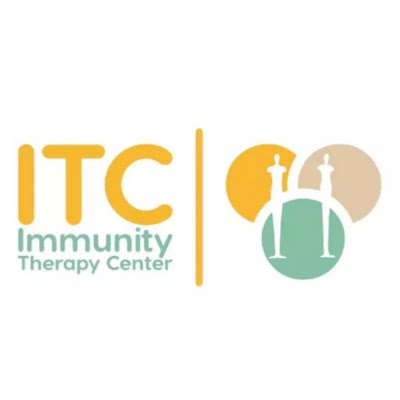Pancreatic cancer is a scary diagnosis. It’s a tough illness with limited treatment options. But what if there’s a glimmer of hope beyond the usual treatments? In this blog, we’ll dive into the search for new ways to tackle pancreatic cancer.
Specifically, we’ll explore how Mexico is offering fresh hope and innovative treatments for patients facing this formidable disease. Let’s journey together into the realm of alternative therapies and discover how they’re changing the landscape of pancreatic cancer treatment.
Table of Contents
Understanding Pancreatic Cancer
Pancreatic cancer is a type of cancer that occurs in the pancreas, an organ located behind the stomach. It is characterized by the abnormal and uncontrolled growth of cells in the pancreas, leading to the formation of tumors. Pancreatic cancer is considered one of the most lethal forms of cancer due to its tendency to spread rapidly and the difficulty of detecting it in its early stages.
Here are some key points to understand about pancreatic cancer:
Types of Pancreatic Cancer: There are two main types of pancreatic cancer:
- Exocrine Pancreatic Cancer: This type accounts for the majority of pancreatic cancer cases (over 95%) and originates in the exocrine cells, which produce enzymes to aid in digestion.
- Endocrine Pancreatic Cancer (Neuroendocrine Tumors): This type is much rarer and develops in the hormone-producing cells of the pancreas.
Risk Factors: Several factors may increase the risk of developing pancreatic cancer, including:
- Age: The risk increases with age, with the majority of cases occurring in people over 60.
- Smoking: Cigarette smoking is one of the most significant risk factors.
- Family History: A family history of pancreatic cancer or certain genetic syndromes can elevate the risk.
- Obesity: Being overweight or obese increases the risk.
- Chronic Pancreatitis: Long-term inflammation of the pancreas can raise the risk.
Symptoms: Pancreatic cancer often doesn’t cause symptoms until it’s advanced. When symptoms do occur, they may include:
- Jaundice (yellowing of the skin and eyes)
- Abdominal or back pain
- Unexplained weight loss
- Loss of appetite
- Digestive problems
- Changes in stool, such as pale or greasy stools
Diagnosis: Pancreatic cancer is often diagnosed through a combination of medical history review, physical examination, imaging tests (such as CT scans or MRI), and biopsy.
Alternative Pancreatic Cancer Treatments vs Conventional Treatment
Alternative pancreatic cancer treatments are often sought out by patients who are exploring options beyond conventional medical approaches. It’s crucial to understand the key differences between alternative treatments and conventional treatments:
Conventional Treatments:
- Surgery: For operable pancreatic cancer, surgical removal of the tumor offers the best chance of cure. This may involve removing part or all of the pancreas, depending on the location and extent of the tumor.
- Chemotherapy: Chemotherapy drugs are used to kill cancer cells or slow their growth. They may be given before surgery (neoadjuvant chemotherapy) to shrink the tumor, after surgery (adjuvant chemotherapy) to kill any remaining cancer cells, or as palliative treatment for advanced-stage cancer.
- Radiation Therapy: Radiation therapy uses high-energy beams to kill cancer cells or shrink tumors. It may be used alone or in combination with surgery and chemotherapy.
- Targeted Therapy: Targeted therapy drugs are designed to interfere with specific molecules involved in cancer growth and progression. They may be used in combination with chemotherapy or as a standalone treatment.
- Immunotherapy: Immunotherapy drugs harness the body’s immune system to attack cancer cells. While they have shown promise in some cancers, their effectiveness in pancreatic cancer is still being studied.
Alternative Treatments:
- Dietary Supplements: Some patients turn to dietary supplements, vitamins, herbs, or botanicals with the belief that they may help fight cancer or alleviate symptoms. However, evidence supporting their effectiveness in treating pancreatic cancer is often limited, and some supplements may interact negatively with conventional treatments.
- Acupuncture: Acupuncture involves inserting thin needles into specific points on the body to alleviate pain or other symptoms. While some patients find acupuncture helpful for managing treatment side effects like pain and nausea, its efficacy in treating pancreatic cancer itself is unclear.
- Mind-Body Therapies: Mind-body therapies such as meditation, yoga, and tai chi may help reduce stress, improve quality of life, and enhance overall well-being for pancreatic cancer patients. However, they are not intended to replace conventional medical treatments.
- Alternative Medicine Clinics: Some alternative medicine clinics offer unconventional treatments such as high-dose vitamin C therapy, ozone therapy, or hyperthermia. These treatments lack scientific evidence to support their efficacy in treating pancreatic cancer and may pose risks to patients’ health.
Best Alternative Cancer Treatment Clinic in Mexico
One of the well-known alternative cancer treatment clinics in Mexico is the Immunity Therapy Center.
Located in Tijuana, Mexico, Immunity Therapy Center offers a range of alternative treatments and therapies for cancer patients seeking alternative or complementary approaches to conventional treatments.
The clinic specializes in holistic, personalized treatment plans that incorporate a combination of therapies such as high-dose vitamin C therapy, hyperthermia, ozone therapy, detoxification protocols, nutritional therapy, and immune system support.
Immunity Therapy Center emphasizes a patient-centered approach, focusing on addressing the underlying causes of cancer and strengthening the body’s natural defenses.

Alternative Pancreatic Cancer Treatment in Mexico Cost
Alternative pancreatic cancer treatments in Mexico, such as those offered at certain clinics, can vary widely in cost. One such example is the Immunity Therapy Center located in Tijuana, Mexico. This clinic offers alternative cancer treatments, including treatments for pancreatic cancer, at a cost of approximately $18,995.
| Procedure | Cost |
|---|---|
| Alternative Pancreatic Cancer Treatment | $18,995 |
It’s important to note that this cost typically covers a specific treatment plan tailored to the individual patient’s needs. The treatment plan may include various alternative therapies such as high-dose vitamin C therapy, hyperthermia, ozone therapy, detoxification protocols, nutritional therapy, and immune system support.
Alternative Pancreatic Cancer Treatment in Mexico – Patient Testimonial
Why choose Mexico for Alternative Pancreatic Cancer Treatment?
Choosing Mexico for alternative pancreatic cancer treatment can be influenced by several factors:
- Access to Alternative Therapies: Mexico offers access to alternative therapies that may not be readily available or approved in other countries. These therapies can include holistic approaches, alternative medicines, and treatments not yet widely accepted in conventional medicine.
- Cost: Treatment costs in Mexico may be lower compared to those in countries like the United States or Europe. This can be particularly appealing for individuals who are concerned about the financial burden of cancer treatment.
- Availability of Integrative Medicine Centers: Mexico has numerous integrative medicine centers that offer a combination of conventional and alternative treatments. These centers often focus on holistic approaches to cancer care, addressing the physical, emotional, and spiritual aspects of healing.
- Less Stringent Regulations: Some alternative treatments may not meet the regulatory standards of countries with stricter medical regulations. Mexico may offer more flexibility in this regard, allowing patients to explore a wider range of treatment options.
- Geographical Proximity: For individuals residing in the United States or other nearby countries, Mexico’s proximity makes it a convenient option for seeking alternative cancer treatment. Traveling to Mexico for treatment may be more feasible than traveling to distant locations.
Explore alternative pancreatic cancer treatments in Mexico today for holistic care options and a personalized approach to healing. Contact us now to learn more and take the next step towards a brighter tomorrow.







